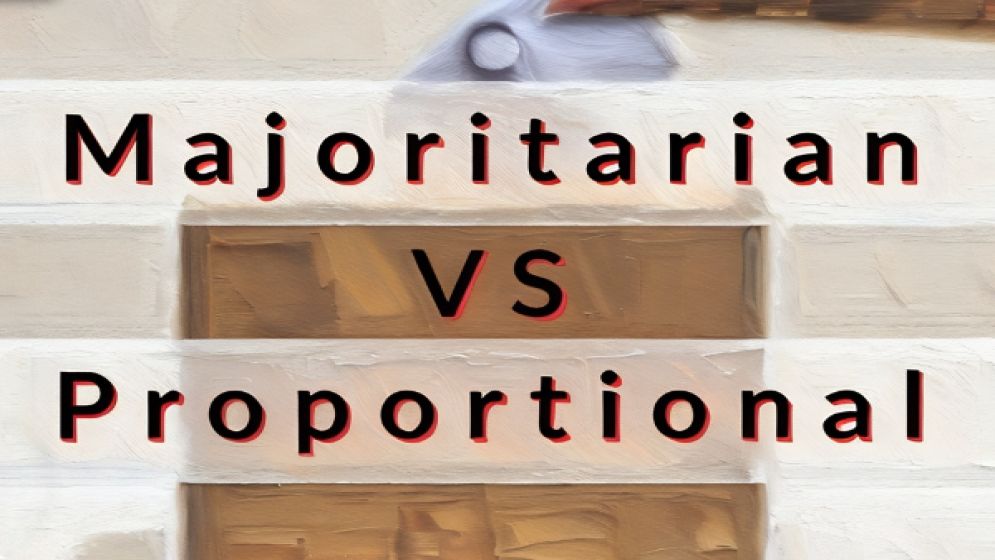Why is Proportional Representation election system a double-edged sword for Bangladesh 2.0?
Robiul Hasan Saimon
Publish: 17 Oct 2024, 02:13 PM

Following a decade and a half of devastation to the democratic process, the July-August uprising has provided the people of Bangladesh with an opportunity to revitalize the country's democratic institutions.
Naturally, reforming the electoral process has become a central concern, supported by strong rationale.
This demand for reform intensified after the Awami League (AL) transformed into an authoritarian regime following its overwhelming victory in the 2008 election.
The party used its two-thirds majority to amend the constitution without opposition consent, consolidating its power.
Historically, Bangladesh employs a first-past-the-post (FPTP) electoral system, where the candidate with the highest number of votes in a constituency is declared the winner, and the party with the most winning candidates forms the government.
In this system, losing candidates receive no reward, even if they garner a significant share of the popular vote.
An alternative is the proportional representation (PR) system, which allocates parliamentary seats based on the percentage of votes each party receives.
Given how the AL utilized its majority from an FPTP election to establish an autocratic government, there are growing calls among stakeholders for a shift to the PR system in future elections.
While the PR electoral system is praised in many countries for its potential to ensure fair representation in parliament and government, its implementation in Bangladesh may face challenges for various reasons.
Although many countries successfully use PR, few share the socio-political context of Bangladesh. Notably, no South Asian country has yet adopted a PR system.
As discussions about electoral reforms unfold in Bangladesh, it is crucial to carefully evaluate the pros and cons of each alternative and consider the trade-offs associated with implementing any of the available systems.
-6710c6a9138cb.png)
The concerns for PR system
One of the most significant flaws of the PR system in the context of Bangladesh is that it would further weaken the already tenuous connection between parliamentary members and their constituencies.
Bangladeshi elected representatives are frequently criticized for not fostering strong relationships with the constituents they serve.
In the current system, candidates invest money both to secure their party nominations and to win votes from the public.
Under a PR system, political parties would nominate candidates to represent them in parliament, leading to diminished accountability of these candidates to their constituents.
The trend of wealthy businessmen spending large sums to secure parliamentary seats could also increase significantly.
Moreover, this system may create a sense of disengagement, as candidates would not rely on the support of their constituents to gain election.
Such disengagement could undermine the democratic accountability of parliament members, which is essential to any electoral system.
Without direct representation, the government may struggle to understand the preferences and demands of the people, which are more easily gathered through directly elected representatives in an FPTP system.
Another critical concern with the PR system is that it often necessitates coalition-building among political parties, resulting in a potentially fragile and weak government.
The concept of the "kingmaker" is well-known in South Asian politics, where smaller parties can exert disproportionate influence over larger ones, despite having only a small share of the popular vote.
These smaller parties may receive monetary benefits in exchange for supporting larger parties in achieving a parliamentary majority.
The PR system could exacerbate the kingmaker dynamic, which might seriously undermine the democratic process, as a small group of representatives could wield significant control over larger party representatives.
-6710c6c7cfdaf.png)
What are the perceived benefits of
the PR system?
Some advocates of the PR system argue that it will help reduce various significant malpractices, such as the use of muscle and money power, bribery, violence at polling stations, ballot snatching, ballot stuffing, and rigging, all of which are prevalent in the current FPTP system.
However, these issues are deeply ingrained in Bangladesh's political culture. Without addressing cultural practices and establishing the rule of law, these malpractices cannot be effectively controlled.
For example, in a PR system, political parties can still manipulate the electoral environment through bribery, ballot snatching, and rigging by placing their supporters at voting centers, as all major parties have grassroots committees throughout the country.
Another key reason for supporting the PR system over FPTP is the belief that it will prevent drastic fluctuations in election outcomes.
Proponents argue that since parliamentary seats are allocated based on the proportion of popular votes received, the number of seats held by political parties will remain relatively stable, as they have a consistent base of supporters who will vote for them under any circumstances.
However, this reasoning is flawed; it could foster a culture of unaccountability among political parties, especially if they believe a certain number of seats are guaranteed regardless of their performance.
Additionally, an incumbent party's share of the popular vote can still plummet due to poor governance, particularly when voters are more conscious and informed. Thus, the PR system cannot entirely prevent significant changes in election results.
While the PR system may offer a more accurate representation of voter opinions and ensure that diverse voices are heard in parliament, it carries considerable drawbacks that could threaten the already fragile electoral system in Bangladesh.
Policymakers must carefully consider whether the current socio-cultural and political landscape is capable of managing the potential downsides of the PR system, such as decreased representation, fragile coalition governments, weakened democratic accountability, and the rise of radicalism.
It is essential to explore modifications to the proposed system that reflect the unique context of Bangladesh to ensure its effective functioning. Otherwise, implementing the PR system could create more problems for the nation.
—-
Robiul Hasan Saimon is the former joint convenor of JCD, Master Da' Shurja Shen Hall, Dhaka University
